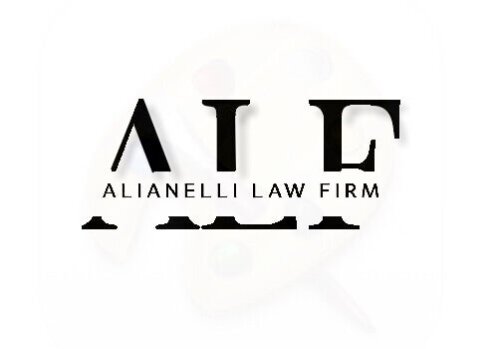Best Bankruptcy & Debt Lawyers in Rome
Share your needs with us, get contacted by law firms.
Free. Takes 2 min.
List of the best lawyers in Rome, Italy
Italy Bankruptcy & Debt Legal Articles
Browse our 1 legal article about Bankruptcy & Debt in Italy written by expert lawyers.
- Overwhelmed by Debt in Italy? Crisis - Legge 3/2012 Reform
- Italy allows individuals and small non-fallible businesses to wipe out or heavily cut debts using esdebitazione procedures under the Codice della crisi d'impresa e dell'insolvenza (CCII), often still called the "Save-Suicide Law". The Consumer Plan (Piano del Consumatore) is only for private individuals acting as consumers, not for entrepreneurs, and... Read more →
About Bankruptcy & Debt Law in Rome, Italy
In Rome, Italy, bankruptcy and debt law governs the legal processes and procedures related to financial distress, insolvency, and debt management. These laws aim to protect both debtors and creditors, providing a framework for resolving financial difficulties and ensuring fair treatment for all parties involved.
Why You May Need a Lawyer
Seeking legal advice from a qualified lawyer specializing in bankruptcy and debt can be crucial in various situations, including:
- If you are facing overwhelming debt and need guidance on the best course of action
- If you are considering filing for bankruptcy and need assistance navigating the complex legal procedures
- If your wages are being garnished or your property is at risk of repossession
- If you are being harassed by debt collectors and need help enforcing your rights
- If you need assistance negotiating debt settlements or restructuring payment plans
Local Laws Overview
In Rome, Italy, several key aspects of bankruptcy and debt law are particularly relevant:
- Bankruptcy Proceedings: Bankruptcy proceedings in Italy primarily follow the Italian Bankruptcy Law and the Italian Civil Code. They involve a court-supervised process that aims to discharge or reorganize the debtor's debts.
- Creditors' Rights: Creditors have the right to recover their debts through legal actions, and their claims are generally prioritized based on the order of preference established by law.
- Debt Settlement: Italian law provides mechanisms for debtors and creditors to negotiate and reach agreements on debt settlement. Mediation is often encouraged to facilitate this process.
- Asset Liquidation: In bankruptcy cases, the debtor's assets may be liquidated to repay creditors. However, some assets, such as those necessary for the debtor's livelihood, may be exempt from liquidation.
- Debt Discharge: Bankruptcy can result in the discharge of certain debts, relieving the debtor from the legal obligation to repay them. However, not all types of debts are dischargeable.
Frequently Asked Questions
1. Can I file for bankruptcy in Rome, Italy?
Yes, individuals and businesses can file for bankruptcy in Rome, Italy. However, specific eligibility criteria and procedures must be followed. Consulting with a bankruptcy lawyer is advisable to determine if you meet the requirements and to navigate the legal process.
2. Will filing for bankruptcy eliminate all my debts?
No, not all debts can be discharged through bankruptcy. Certain types, such as tax debts, child support, and court-ordered fines, generally cannot be eliminated. It is essential to consult with a bankruptcy lawyer to assess which debts may be dischargeable in your case.
3. Can creditors continue to pursue me after filing for bankruptcy?
Once you file for bankruptcy, an automatic stay goes into effect. This prevents most creditors from taking legal actions or contacting you in an attempt to collect the debt. However, there may be exceptions, and it's crucial to consult with a lawyer to understand the extent of protection provided under Italian bankruptcy law.
4. Will bankruptcy affect my credit rating?
Yes, filing for bankruptcy will likely have a negative impact on your credit rating. However, it allows you to make a fresh start and begin rebuilding your financial situation. Over time, with responsible financial management, you can work towards improving your credit standing.
5. Can I choose the type of bankruptcy I want to file?
The type of bankruptcy available to you depends on your specific circumstances. In Italy, individuals can typically file for either liquidation bankruptcy (known as "fallimento") or debt restructuring bankruptcy (known as "concordato preventivo"). A bankruptcy lawyer can assess your situation and advise you on the most suitable option.
Additional Resources
For more information and assistance with bankruptcy and debt in Rome, Italy, consider reaching out to these resources:
- Italian Ministry of Justice: Bankruptcy Law Division - http://www.giustizia.it
- Italian Bar Association (Ordine degli Avvocati) - http://www.ordineavvocati.it
- Consumer Protection Agency (Associazione per la Difesa dei Consumatori e dell'Ambiente) - http://www.adiconsum.it
Next Steps
If you require legal assistance in bankruptcy and debt matters in Rome, Italy, follow these steps:
- Collect and organize all relevant financial documents and records.
- Research and identify bankruptcy lawyers or law firms specializing in debt in Rome.
- Schedule consultations with at least two lawyers to assess their expertise and discuss your specific situation.
- Select a lawyer you feel comfortable working with and engage their services by signing a retainer agreement.
- Provide your chosen lawyer with all necessary information and cooperate fully throughout the legal process.
Lawzana helps you find the best lawyers and law firms in Rome through a curated and pre-screened list of qualified legal professionals. Our platform offers rankings and detailed profiles of attorneys and law firms, allowing you to compare based on practice areas, including Bankruptcy & Debt, experience, and client feedback.
Each profile includes a description of the firm's areas of practice, client reviews, team members and partners, year of establishment, spoken languages, office locations, contact information, social media presence, and any published articles or resources. Most firms on our platform speak English and are experienced in both local and international legal matters.
Get a quote from top-rated law firms in Rome, Italy — quickly, securely, and without unnecessary hassle.
Disclaimer:
The information provided on this page is for general informational purposes only and does not constitute legal advice. While we strive to ensure the accuracy and relevance of the content, legal information may change over time, and interpretations of the law can vary. You should always consult with a qualified legal professional for advice specific to your situation.
We disclaim all liability for actions taken or not taken based on the content of this page. If you believe any information is incorrect or outdated, please contact us, and we will review and update it where appropriate.
Browse bankruptcy & debt law firms by service in Rome, Italy
Rome, Italy Attorneys in related practice areas.
















